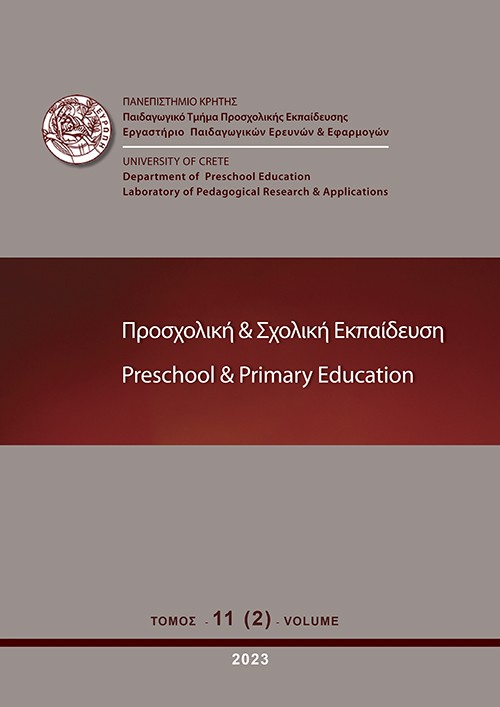Is school self-evaluation the vehicle for kindergarten teachers' professional well-being?: Teachers' views

Abstract
On the occasion of the Government paper 140 / 20-1-2021 issued by the Ministry of Education and Religions entitled: "Collective planning, internal and external evaluation of schools in terms of their educational work" and concerns the self-evaluation of schools, this paper aims to explore the views of kindergarten teachers regarding with the process of self-assessment. Moreover the current research is also referred to the topic of professional well-being. These topic areas are worth researching because they belong to a field that has not been sufficiently studied in our country, especially for preschool education. There is a very small number of researches that refer both to the self-evaluation of the school units and the professional well-being of educators. Through the use of semi-structured interviews, the views of the kindergarten teachers of the sample are drawn on this topic.
The kindergarten teachers that were the sample of the research were 15 in total, coming from different parts of Greece. In order to analyze the data of the semi-structured interviews, the method of thematic analysis was used.
Regarding to the above, most teachers are in favor of self-evaluation of school units, although they have some doubtsabout the implementation of the process. In fact, many of the dimensions of school life that need evaluation were mentioned. According to the kindergarten teachers, the people who should be involved in this process are mainly the teachers themselves, while the school leadership and the parents were also mentioned. Teachers also identified several benefits of the self-assessment process both in themselves (eg professional development) and in the school unit (eg opening a school in the community). Also, all the kindergarten teachers mentioned the cooperation and communication with their colleagues as the most important factor that affects their professional well-being and can be influenced by the self-evaluation of their school unit.
Article Details
- How to Cite
-
Kountzoglou, A. S., & Kakana, D. M. (2023). Is school self-evaluation the vehicle for kindergarten teachers’ professional well-being?: Teachers’ views. Preschool and Primary Education, 11(2), 180–206. https://doi.org/10.12681/ppej.31589
- Section
- Articles

This work is licensed under a Creative Commons Attribution-NonCommercial-ShareAlike 4.0 International License.
Authors who publish with this journal agree to the following terms:
- Authors retain copyright and grant the journal right of first publication with the work simultaneously licensed under a Creative Commons Attribution Non-Commercial License that allows others to share the work with an acknowledgement of the work's authorship and initial publication in this journal.
- Authors are able to enter into separate, additional contractual arrangements for the non-exclusive distribution of the journal's published version of the work (e.g. post it to an institutional repository or publish it in a book), with an acknowledgement of its initial publication in this journal.
- Authors are permitted and encouraged to post their work online (preferably in institutional repositories or on their website) prior to and during the submission process, as it can lead to productive exchanges, as well as earlier and greater citation of published work (See The Effect of Open Access).


